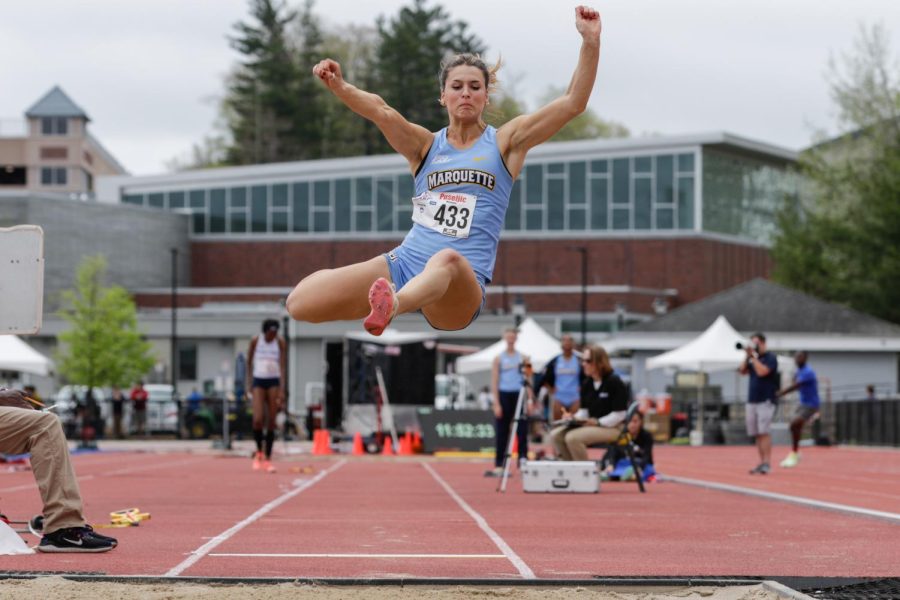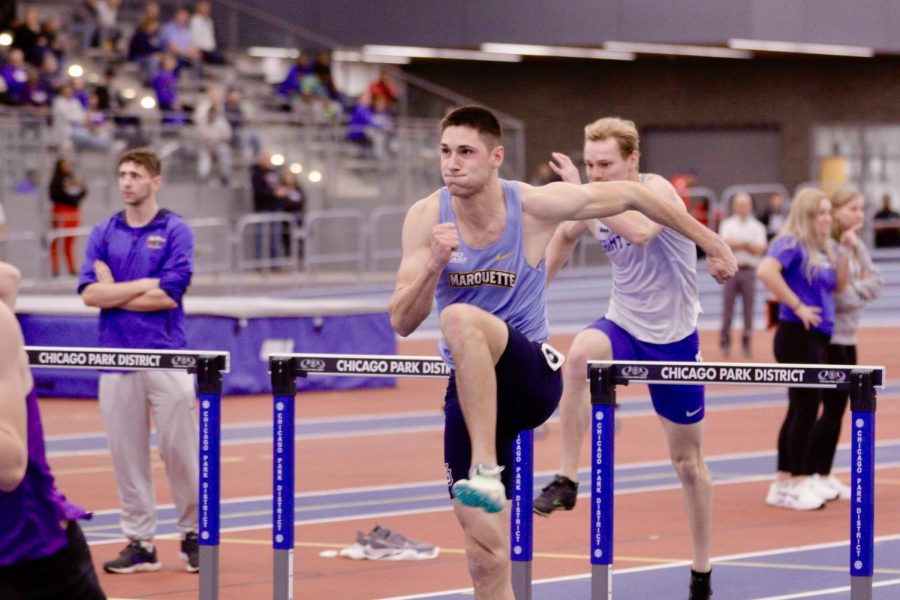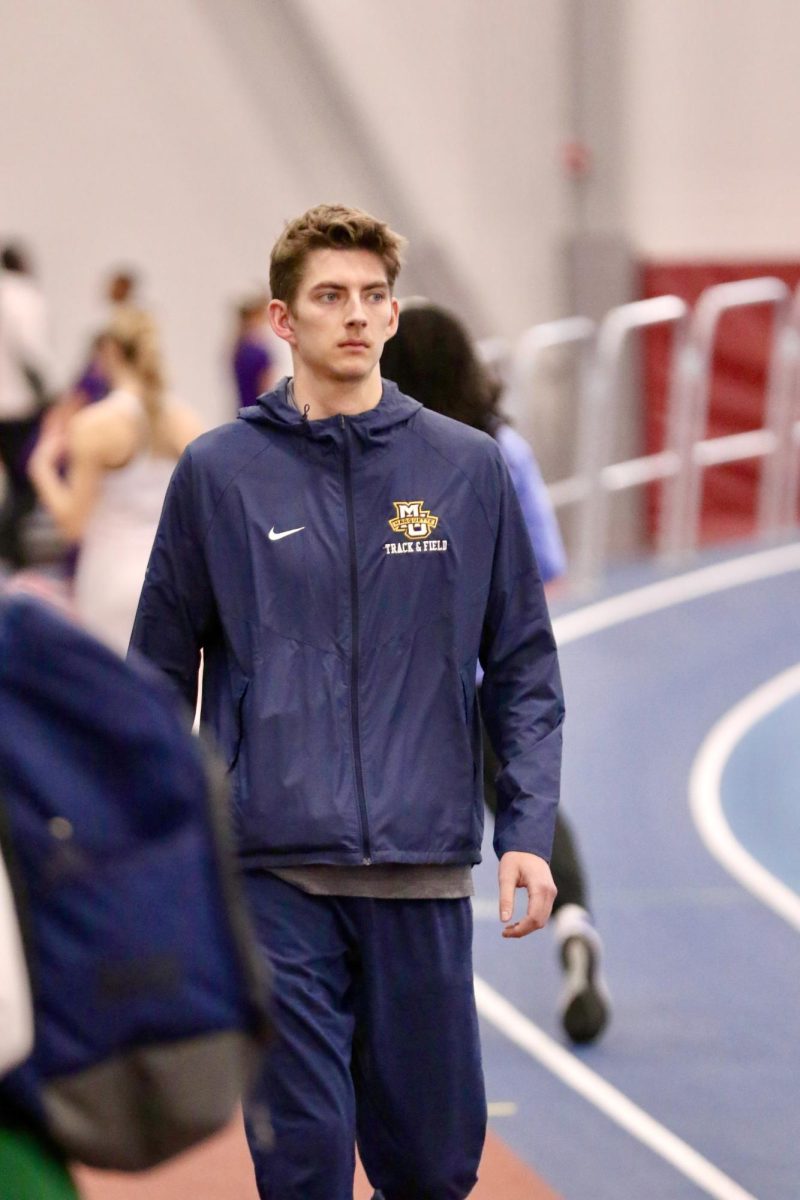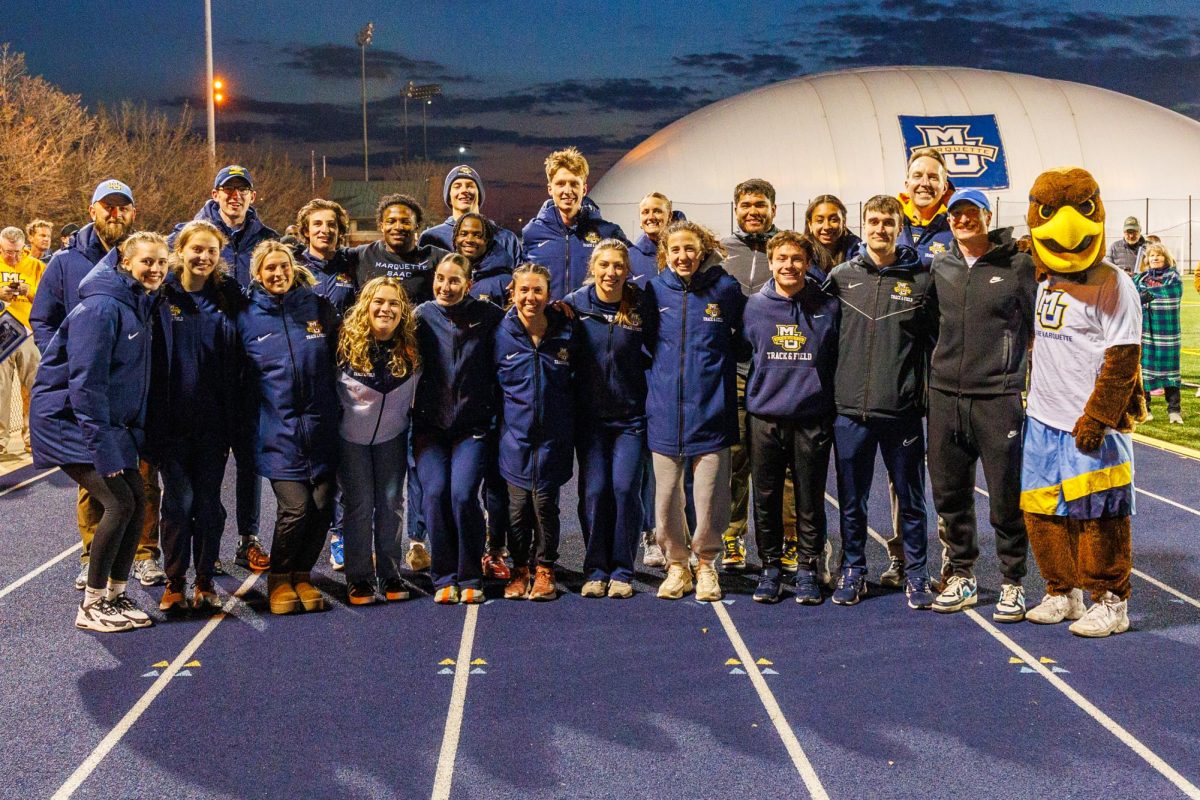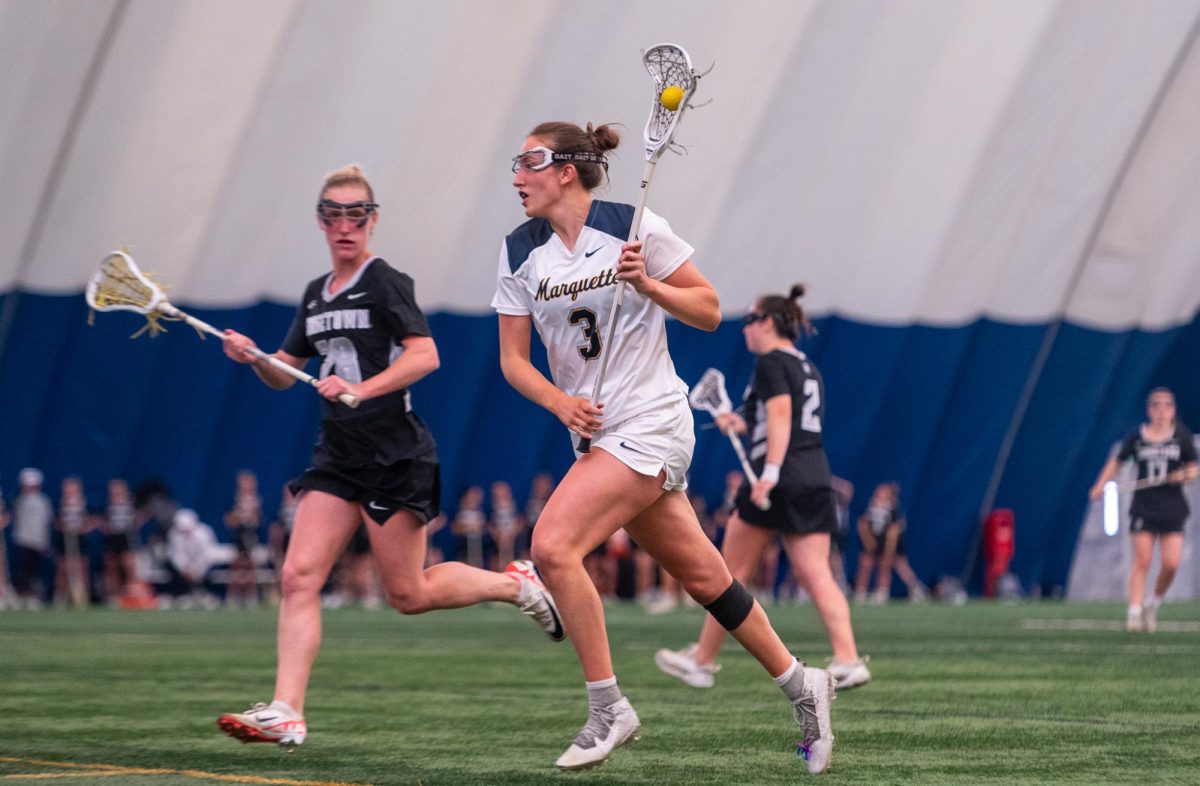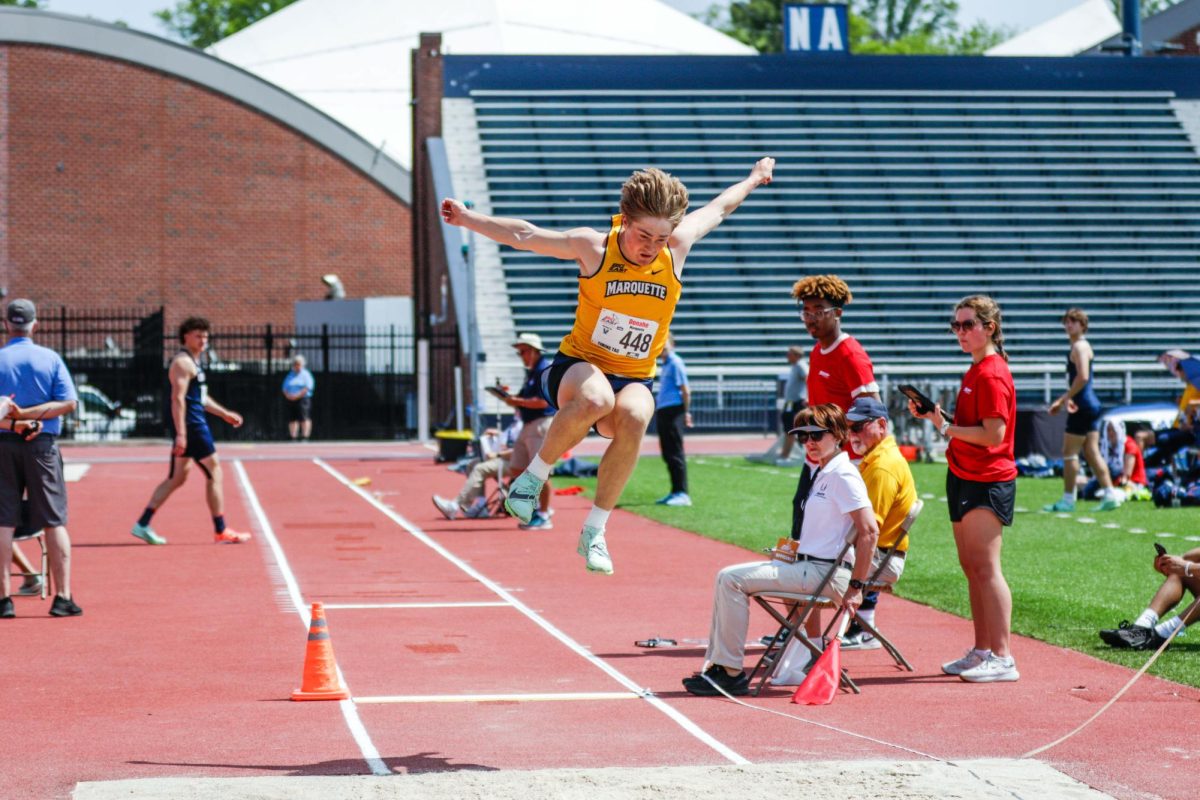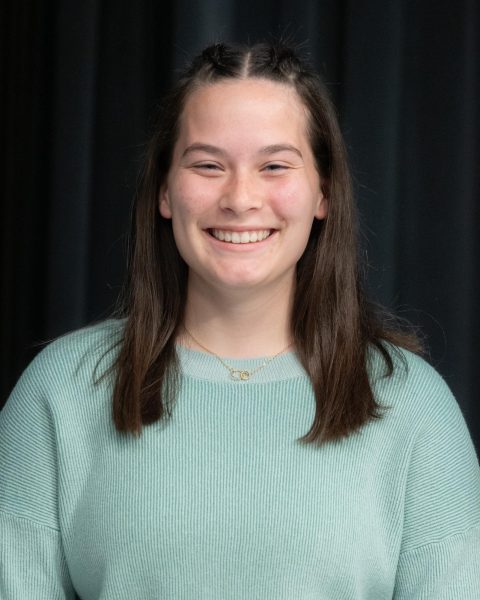According to the University of Michigan School of Public Health, only 10% of college athletes who struggle with mental health issues seek help. At Marquette, a student-athlete club called SHAPE is working to change this statistic by continuing the conversation of mental health awareness in college athletics.
SHAPE stands for Student Health Allies and Peer Educators and the club meets monthly to plan events for the athletic community.
“We’ll do some yoga, we’ll provide hot chocolate and snacks during midterms week,” Assistant Director for Academic Services Maureen Lewis said. “We’ll bring in a coffee truck during finals week. It’s stuff just to help. ‘This is a hard week; how can we make it better?’”
Junior track & field athlete Daylee Braden — the student leader of the group — said its main goal is to encourage mental health awareness in sports.
“We want to bring awareness to mental health because, obviously, it’s been such an issue throughout the past years and especially with COVID, so we’re trying to create this environment that it’s okay to have these emotions,” Braden said. “We’re going to go through struggles. Just putting an image out there and allowing athletes and whoever we find that it’s okay (and) we’re all human.”
SHAPE was founded in 2017 by former women’s soccer defender Madi Dunker and women’s lacrosse defender Alex Gambacorta along with Maureen, the club’s main facilitator, after they attended the first Big East Student-Athlete Well-Being Forum held at Georgetown.
“It came about from different conversations and different experiences and then finding those ‘lightning rods,’ those people in the space that are like, ‘I’ll stand up, and I would love to talk about mental health advocacy,‘“ Dunker, who is now Marquette’s NIL General Manager, said.
Kari Lewis — the mental health professional on campus — also works with SHAPE to provide training for its members. Using the slogan “Here to Hear,” she most recently did a session on how to be a better listener.
“Hopefully when kids leave here, if they were involved at that level, they are unafraid to talk to anybody who’s having a hard day,” Maureen said. “They just say, ‘Hey, I notice you’re a little bit down, want to talk about it?’”
Sophomore track & field athlete Gus Kasun decided to join SHAPE because of how others in his life have been impacted by mental health struggles.
“One of my close friends in high school, his brother committed suicide, and that was a big thing in my life because I knew him,” Kasun said. “My younger brother, he suffers a lot from anxiety, as well as my own struggles. Being able to be a representative of that is something that is super important to me because I see how it can directly affect the people around me.”
Braden is currently pursuing an undergraduate degree in counseling and jumped on the opportunity to join SHAPE to get hands-on experience.
“I’m super into mental health and bringing awareness to that, something that I’ve struggled with in the past…” Braden said. “It’s helped me bring a leadership role, and I want to help people … I love to be an ear for someone.”
Athlete burnout is a topic that has increasingly become a part of the mental health conversation, and it is defined by the Kansas Journal of Medicine as “a syndrome of emotional and physical exhaustion, a reduced sense of accomplishment, and sport devaluation.”
In her role, Maureen said she has seen more symptoms of burnout in athletes who participate in non-revenue sports.
“Usually, it’s because they have another plan, like they’re going to go to law school or medical school … They want a different experience, and the 20 hours a week of practice plus competing every weekend is not allowing that to happen and feels like burnout,” Maureen said.
As a non-scholarship athlete, Kasun said he has witnessed his teammates struggle with symptoms of burnout due to this uncontrollable factor.
“It’s tough because you do see a lot of people that come in with a desire, but it dies down because we don’t have the reputation that the basketball team does or the volleyball team where they’re seen as these big figures on campus,” Kasun said.
“We’re not treated as equally as some of the other teams. It makes them (track & field athletes) feel less because they can’t do anything about it, so they don’t work as hard, don’t do as much.”
When Braden feels overwhelmed and burnt out, she said she reminds herself of why she is here in the first place.
“I love to run,” Braden said. “I want to be here. I want to be on my team. I want to be the best for my team, and it’s been so helpful because we have such a good culture on the track team in my eyes. It’s great to have my teammates because we keep moving for each other.”
Similarly to Braden, Kasun said his unconditional love for the sport is what motivates him on the good and bad days.
“For me, being able to come in day-in and day-out and train for two, three, four hours a day and dedicate that free time of your life to those things definitely brings a passion more than a short-term motivation,” Kasun said.
Braden said being in SHAPE has served as a constant reminder to practice self-care for herself as an athlete and human, which is especially relevant in her future career as a counselor.
“You’re going to be working with other people’s problems,” Braden said. “How am I going to help other people if I’m not even the best version of myself right now?
“I’ve seen a decrease in performance if mentally I’m not checked in (and) I’m not doing well… I just think back to those times, and I don’t want that to happen again because I know what it takes to be the best version of myself, so I’m never going to put myself in a situation where that can happen again.”
Seven years after Dunker founded SHAPE, it is still having those conversations and advocating for the mental health of student-athletes.
“It makes me proud to see that we’re passing on the baton, the torch, whatever it is you want to call it … But I’m proud that they’re carrying that on,” Dunker said. “It’s cool to see again year after year, people really step up and say, ‘This is important. This is something we want to continue.'”
This story was written by Kaylynn Wright. She can be reached at kaylynn.wright@marquette.edu or on Twitter/X @KaylynnWrightMU.




